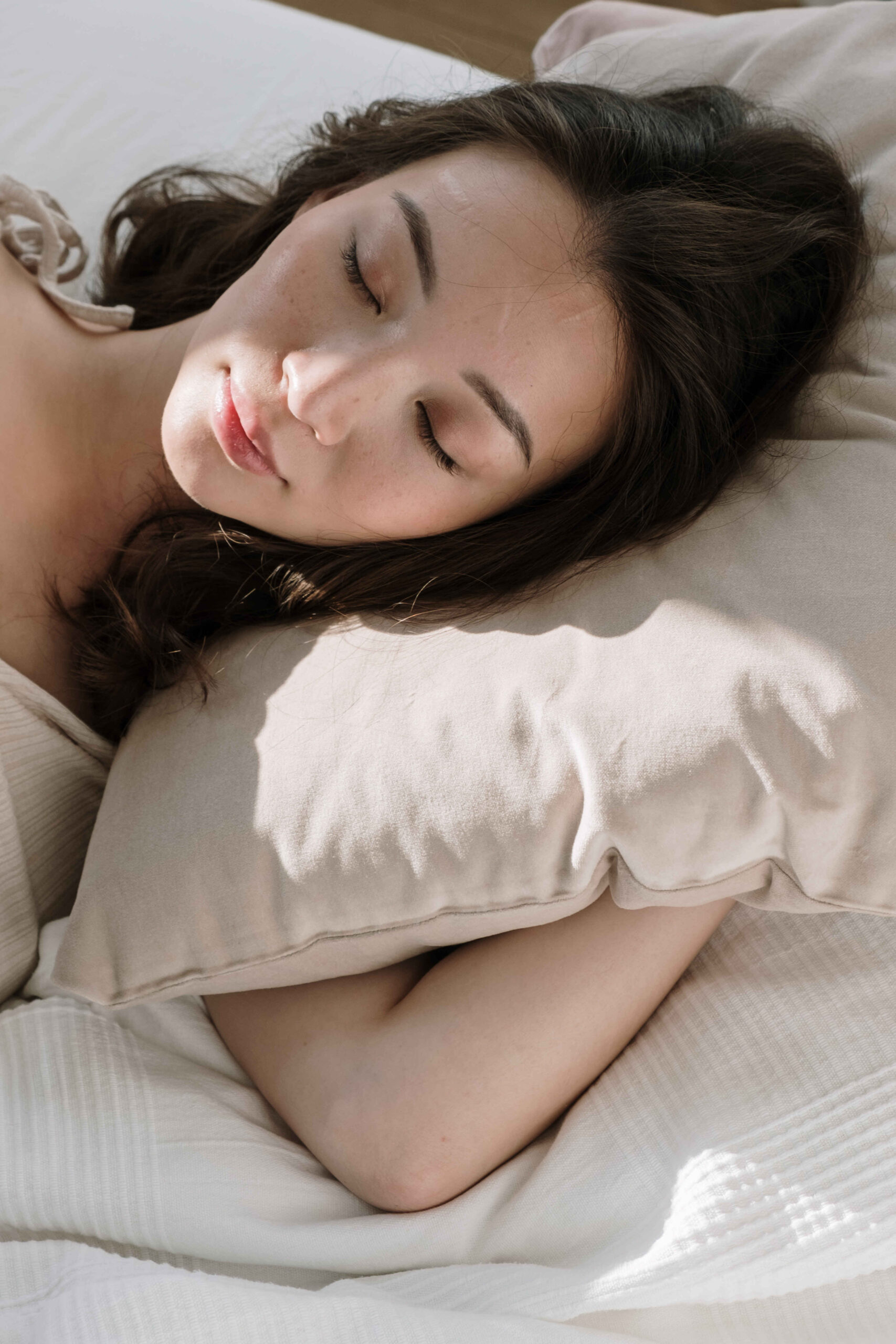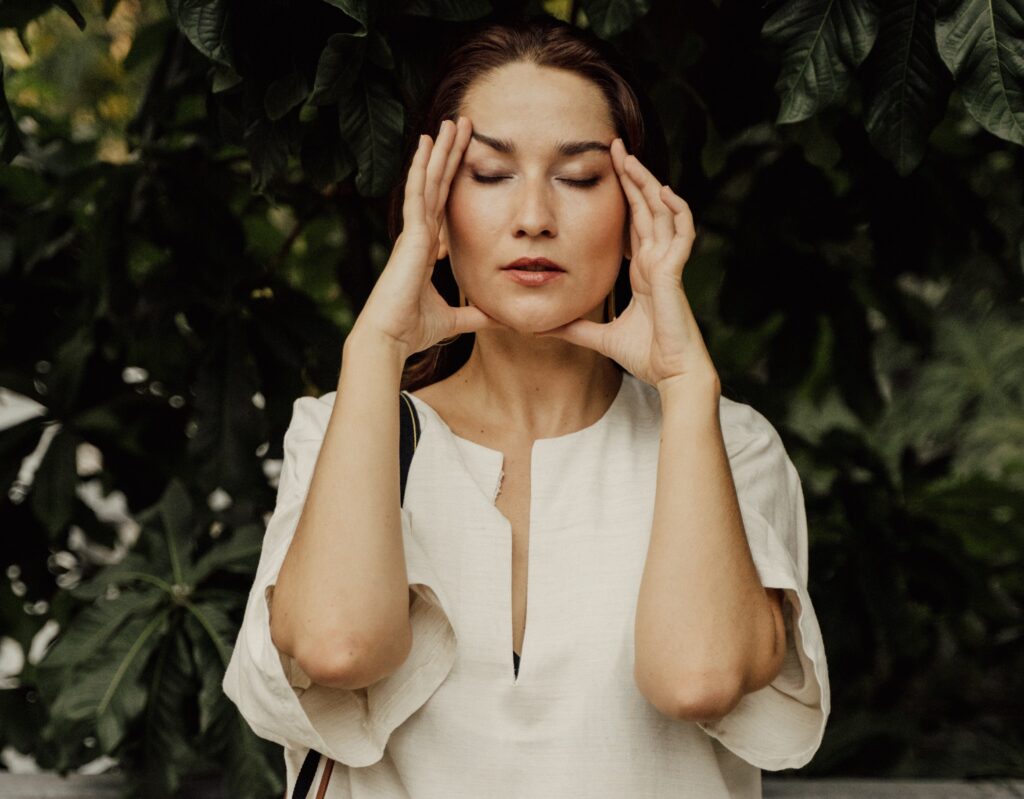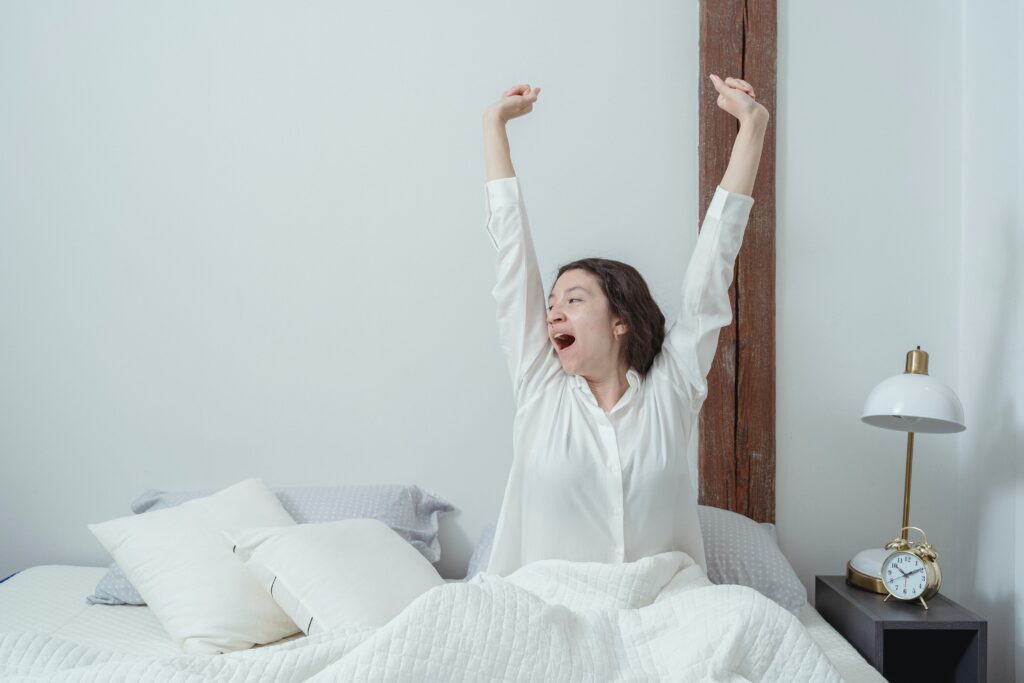One of the fundamental concepts in Chinese Medicine is the balance of yin and yang. Yin and yang are symbols that represent the constant dance of opposing energies that exists in everything – the environment, our bodies, the universe.
The concept of yin and yang is a part of Taoist philosophy (the term Tao meaning “way” or “path”), from which Chinese Medical thought was greatly influenced.
How do yin and yang play out in our lives? Think of yin as cool and a yang as hot, yin as dark and yang as light. But yin and yang are relative terms. For example, cold water is more yin than boiling water, but cold water is more yang than ice.
Chinese Medicine looks at sleep through the concept of yin and yang as well. Daytime is predominantly yang, nighttime is yin. Yang is activity, yin is rest. According to TCM, at night it is the job of the yin to house the yang energy. The yin essentially envelopes the yang, tucking yang into bed like a heavy blanket, putting the yang energy to sleep for the night.
Unless you have insomnia. With insomnia, something is interfering with this natural interplay of yin and yang. The circadian rhythm is thrown off.
Diagnostically, there are different patterns for insomnia, but one of the most common diagnoses TCM practitioners come across in cases of chronic insomnia is what’s called a yin deficiency. If yin is more material and yang is more ethereal, when it comes to the body the yin is then considered the heavier, more dense substances of the body – mainly the body fluids (which can include blood). If the body has insufficient yin, the mind which is more yang (active) can’t become still and is therefore is unable settle for the night. The result is that you’re left wide awake – thinking about, oh, anything and everything – because the yin isn’t strong enough to ground the yang.
Sometimes we see this with prolonged stress and adrenal burnout – that seemingly contradictory state of being so extremely tired that you are unable to sleep. The nervous system is so fried that the parasympathetic state cannot be fully reached. We can also look at the autonomic nervous system through the lens of yin and yang: the Sympathetic Nervous System (fight or flight) being more yang as it is active during our daily activities, whereas the Parasympathetic Nervous System (rest and digest) is more yin and therefore needs to be engaged in the evening when we are resting and sleeping.
In terms of treatment principles, practitioners will work with patients suffering from yin deficiency insomnia to nourish the yin and calm the mind. This can best be achieved through a combination of acupuncture, herbal formulas, proper nutrition and lifestyle changes.
A qualified TCM practitioner will prescribe a formula that fits the pattern and often customize it further to work with a specific patient. Commonly prescribed formulas include: Tian Wan Bu Xin Dan (Emperor of Heaven’s Special Pill to Tonify the Heart), Suan Zao Ren Tang (Sour Jujube Decoction), Liu Wei Di Huang Wan (Six-Ingredient Pill with Rehmannia), Gui Pi Tang (Restore the Spleen Decoction).
One recommended herb for insomnia, an herb that is unique in that it can be taken on its own as opposed to in a formula, is red reishi mushroom (Ling Zhi). Known as an “adaptogen,” reishi works to balance your body back to normal to create a peaceful state of mind and a deeper, more satisfying sleep. In addition to treating insomnia, this herb also has therapeutic properties that make it beneficial for a weakened immune system, forgetfulness, poor digestion, and chronic asthma.
For a red reishi supplement to be effective, it should be hot-water extracted from a fully-mature fruiting body using natural-wood log cultivation. This is to ensure all the active ingredients that reishi are known for are present and are readily absorbed by our body. It commonly takes 3-5 days of supplementing with red reishi mushroom to see changes in sleep, and it is best to take this herb over a longer period of time for the greatest therapeutic effect.
For some of us, sleep is the first thing to be affected when we get off-balance. But the good news is that our natural environment is full of medicinal gifts to assist us with finding balance in our lives – the balance of yin and yang, of activity and rest.





